Building a Community of Care
Today’s college students aren’t afraid to speak out about their mental health and overall well-being. And Emory is listening closely — engaging them directly in the process to create the best environment for them to flourish.
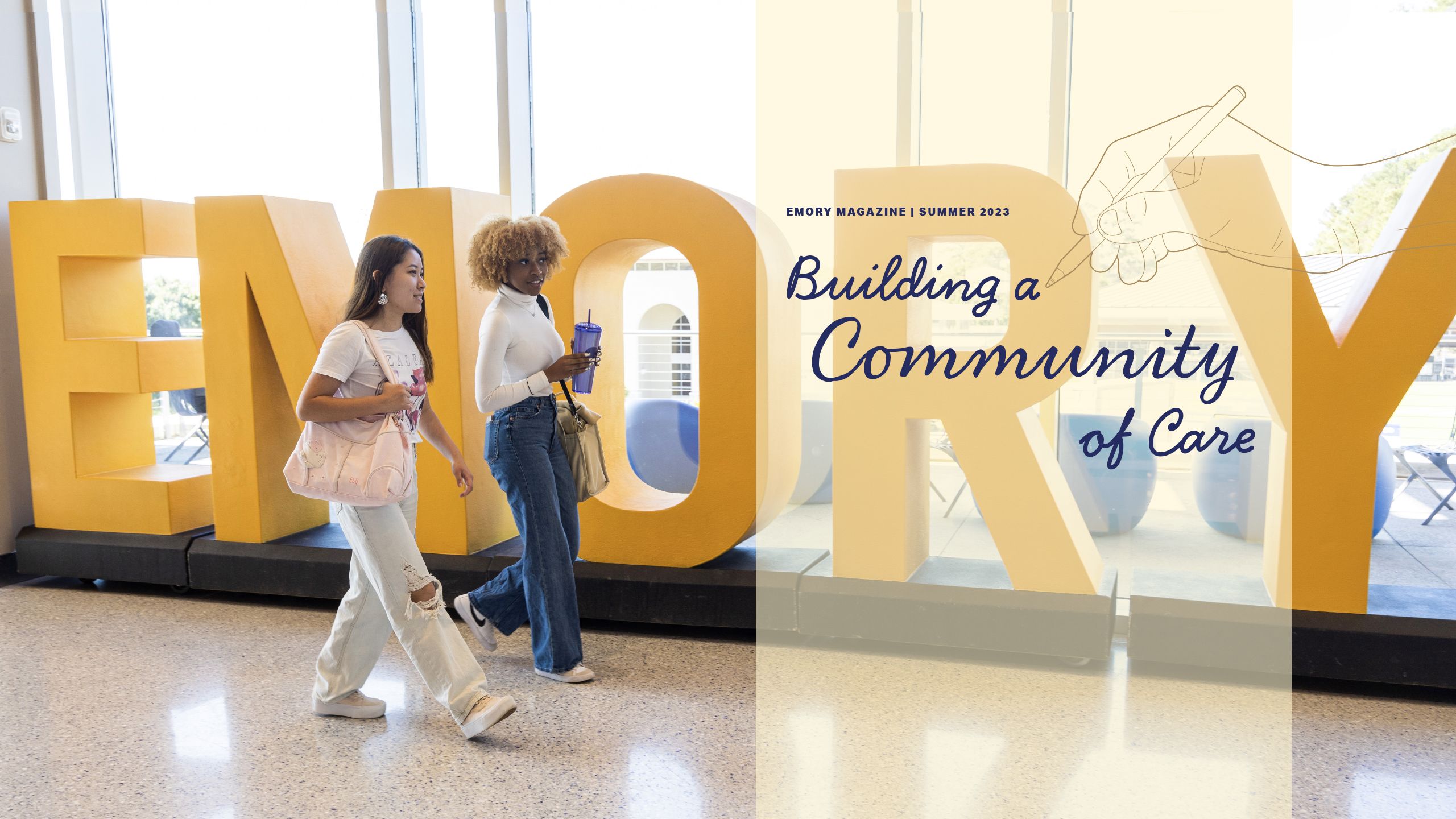
Most students attending universities right now were born into the post-9/11 world, an era heightened by fear and dominated by 24/7 coverage of global conflict and political divisiveness.
They’re the first generation to have grown up as smart-phone natives with the power of the internet — and its vast stores of uncurated information — right in their pockets.
They saw the rise of social media and its reality-warping impact that taunted them with the false perfection of their peers’ lives and reduced complex, nuanced ideas into simple, addictive memes.
Add to the mix a devastating and isolating global pandemic, and it’s no wonder there are so many studies that show record numbers are struggling with depression, anxiety and loneliness.
Yet many people from older generations still have the gall to ask: What’s wrong with young people today?
Ignoring this tired rhetoric — every generation complains about the ones that follow — the only right answer to such a question is that there’s nothing wrong with young people today, says James Raper, Emory’s associate vice president for health, well-being, access and prevention. Instead, he says they are responding appropriately to the world around them.
“At this age, their frontal lobes are still developing,” Raper says. “Imagine the impact of the past 20 years on their incredibly vulnerable brains.”
He likes to use an ecology analogy to point out what’s actually wrong: pinning the culpability on the people rather than their environment. “If we were scientists called to a pond where a significant percentage of the native frog population was struggling, we wouldn’t blame the frogs,” he says. “We would be taking a close look at their ecosystem and considering the ecology’s impact on the frogs. We are now taking the same systems-level approach as we work with college students.”
Yet, at the same time — and despite all these stressful factors — this current generation of high school and college students has evolved some amazing abilities and resilience, Raper says.
“Young people today are particularly in tune with both their needs and the needs of others like no other generation before them,” he says. “They are much more aware of the importance of their mental, emotional and physical well-being, and have become fluent and comfortable in talking about these once socially taboo topics. They are teaching us how to dismantle many of the stigmas long attached to it.”
In addition, they have a desire to partner and engage in deep conversations about the world they are inheriting. “They are not afraid to get involved and raise their voices,” Raper says.
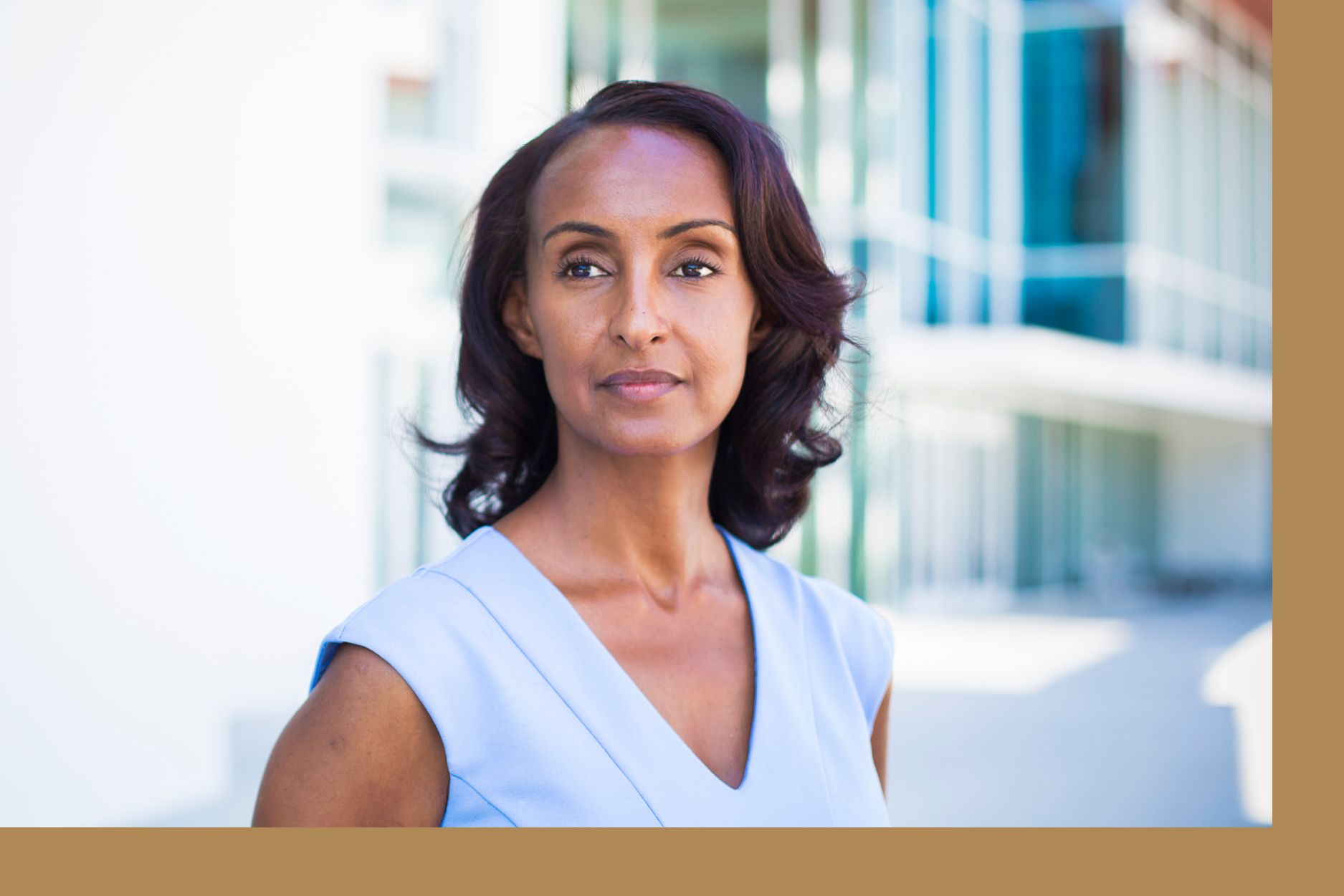
“What we’re hearing is that when they look at the overall college experience, students today value a university’s approach to well-being almost as much as they do its academic prowess and reputation.”
Emory has been listening closely to what they have to say.
“What we’re hearing is that when they look at the overall college experience, students today value a university’s approach to well-being almost as much as they do its academic prowess and reputation,” says Enku Gelaye, Emory’s senior vice president and dean of Campus Life. “That’s a major shift.”
On campus tours, Gelaye says, prospective students and their parents used to primarily focus their questions on courses of study, the quality of the academic facilities and what notable teachers and researchers were on faculty. But now they’re increasingly asking about well-being: What resources exist to help give students a smooth transition from high school? How easy is it to access and use the recreation center? What kind of psychological counseling is available?
Such listening hasn’t gone unanswered. It’s turned into concrete action. A national search process brought Raper to Emory last summer to launch a renewed focus and a more holistic approach to student health and well-being, building up Emory’s emphasis on student flourishing. Gelaye explains that the establishment of the new role serves Campus Life's strategic realignment and aims to bolster integrated health and well-being services, programs and initiatives for Emory’s broad community of undergraduate, graduate and professional students.
“The diversity of identities on Emory’s campuses makes us richer,” Raper says. “It forces us to think about well-being not just for individuals, but our community as well. It means we can’t create a one-size-fits-all approach. Instead, we have to make our well-being offerings inclusive of all our different identities. We have an opportunity to make a much bigger tent.”
Graduate student Neeti Patel 24PH agrees. “One of the things that I deeply value about Emory is its diversity — not just in terms of ethnicity, culture and gender, but also the interests and experiences of its students,” says Patel, who is working on a master’s degree from Rollins School of Public Health and serves as president of the Graduate Student Government Association.
She believes that while some aspects of social media are bad, others have expanded young people’s worlds. “A lot of us grew up more exposed to diversity because we were connected to others from all around the globe through our computers and phones,” Patel says. “I think that really helps us engage in more cultural humility and makes us more willing to try to understand each other and accept differing opinions.”
In his role, Raper oversees Counseling and Psychological Services (CAPS), the Office of Health Promotion, the Office of Respect and Student Health Services. He brings more than 20 years of experience in higher education and tens of thousands of hours providing direct counseling and consultation to students, along with an expertise in collaborative strategic planning, administrative leadership and classroom teaching. He had previously served as assistant vice president of health and well-being at Wake Forest University.
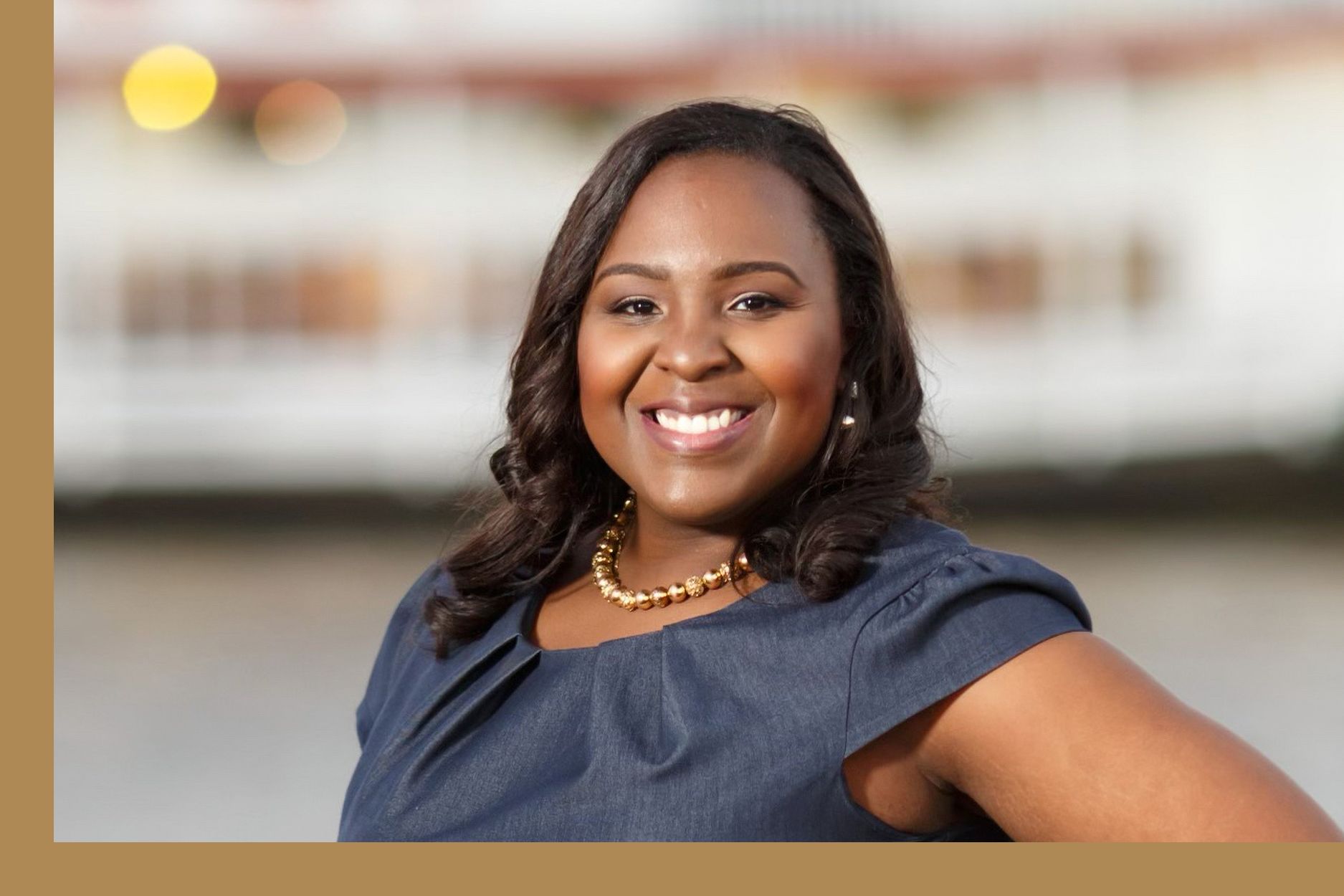
“Students who feel like they belong are freer to live authentically and comfortably pursue their passions.”
Raper is not the only national expert who’s been added to Emory’s well-being effort. Following a similarly competitive search, Kristina K. Bethea Odejimi joined the university this June as the inaugural associate vice president of belonging, engagement and community and dean of students. “Kristina has a collaborative spirit, a passion for student engagement and a demonstrated commitment to student flourishing,” Gelaye says.
With more than a decade of comprehensive experience in student affairs, Odejimi most recently served as dean of students at Bowdoin College, one of the top liberal arts colleges in the U.S., where she had broad responsibilities including overseeing student conduct, case management, international student services and new student orientation, as well as counseling and wellness services, health services and student accessibility.
She’s a passionate advocate for making sure university students feel a welcome sense of belonging on campus.
“Well-being centers on balance, allowing individuals and communities to pursue their full potential,” Odejimi says. “Students who feel like they belong are freer to live authentically and comfortably pursue their passions. Students who find community are more likely to be engaged in their educational experience and have a positive connection to the world around them. This perception directly impacts their sense of well-being.”
Odejimi and Raper bolster a Campus Life leadership team that was already strong and includes Associate Vice President and Athletics Director Keiko Price, who also manages student recreation and fitness, and Vice President David Clark, who oversees student housing, residence life, sorority and fraternity life, dining services and much more. “The goal with bringing new expertise on board and restructuring Campus Life is to create programs that resonate with our students and allow every one of them to be able to take advantage of the extraordinary opportunities and resources available to them during their time at Emory,” Gelaye says.


A Welcome Sense of Belonging
With nearly 500 student-led clubs, sports teams and arts groups that support a diverse range of interests and identities, Emory students have oodles of options to connect with others over passions new and old while building community. These images, many taken by students themselves, showcase the richness and vitality of nonacademic pursuits on our campuses, where students can find their place, their purpose and a sense of belonging.
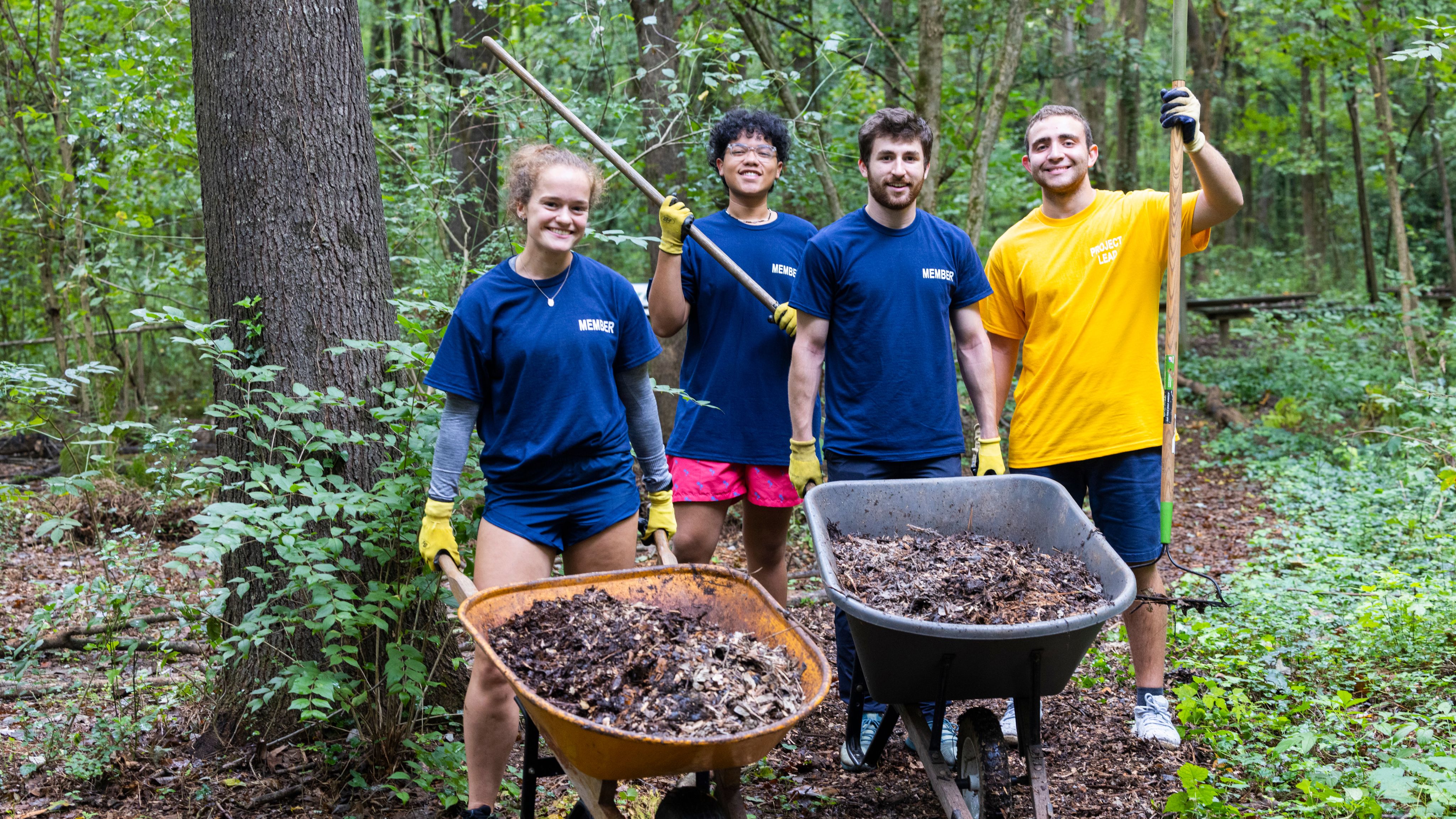
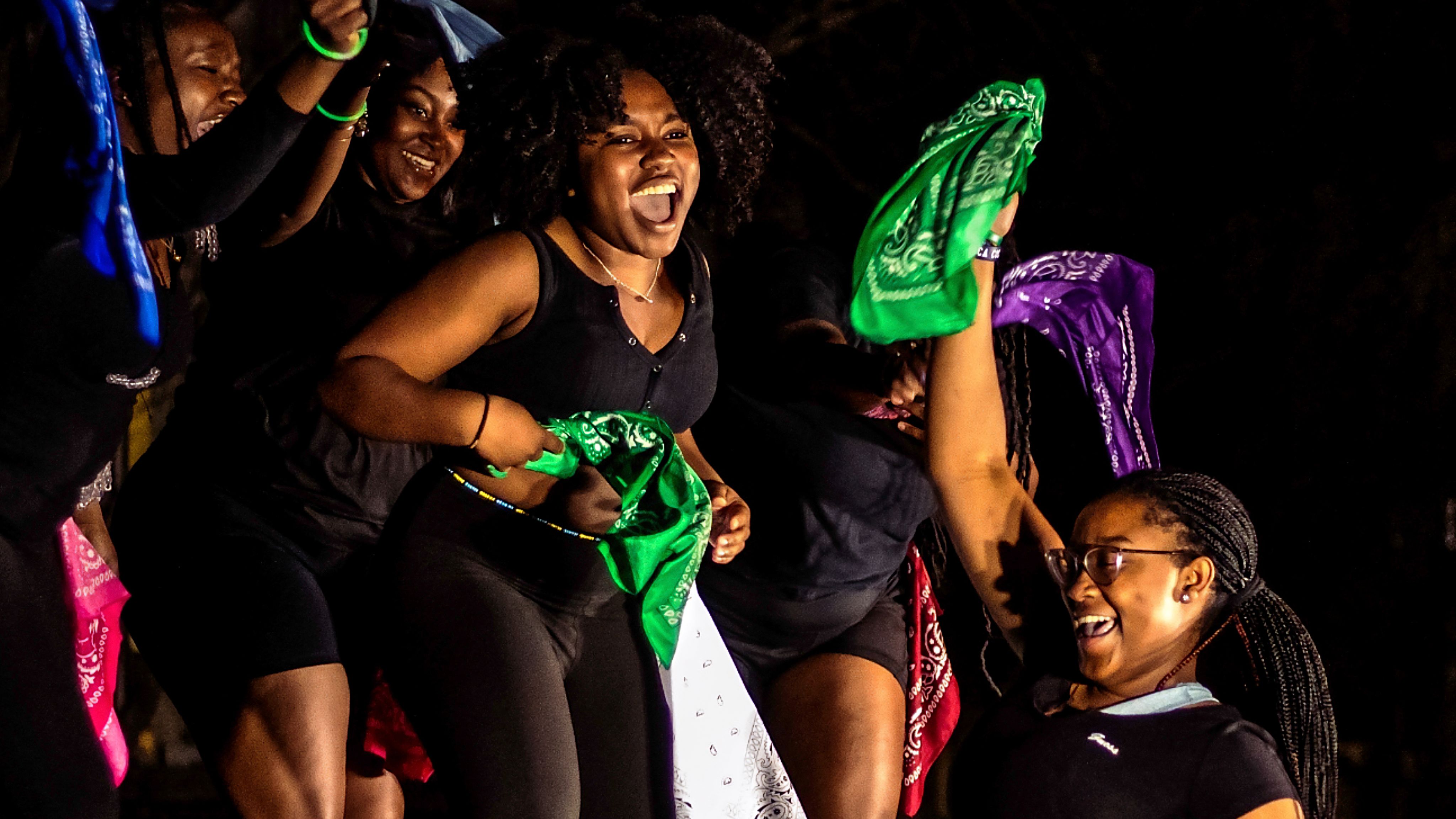
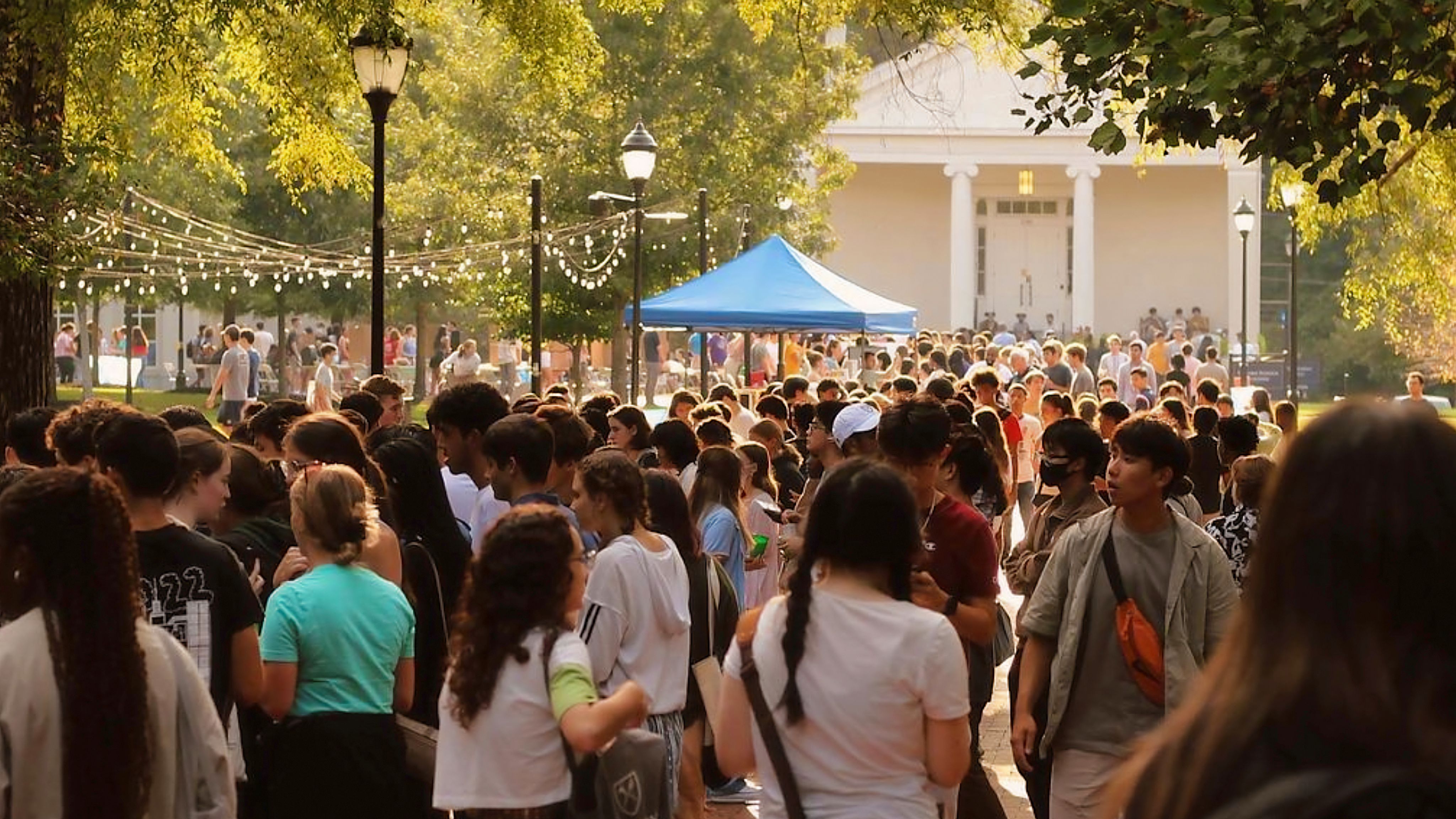
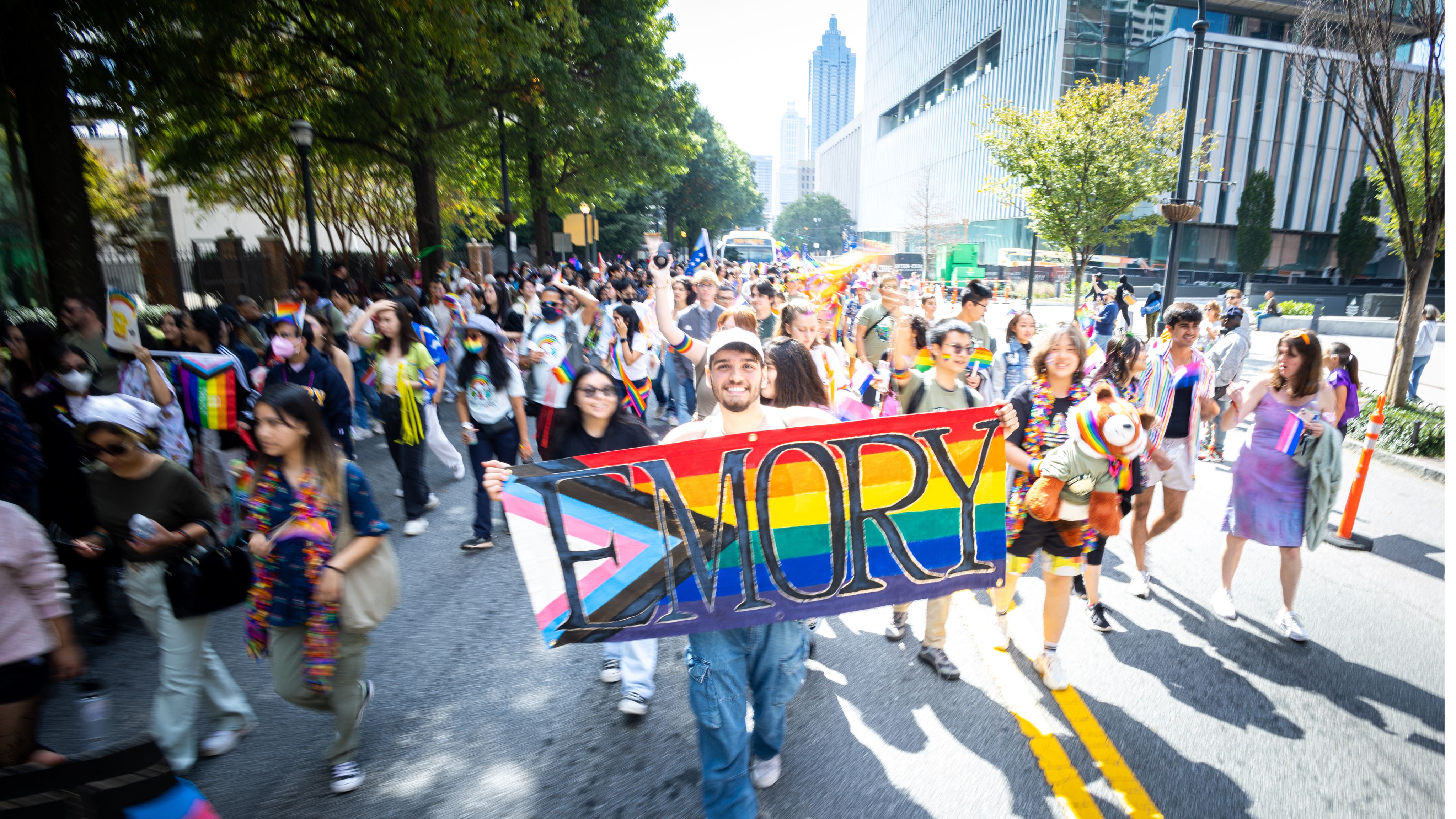
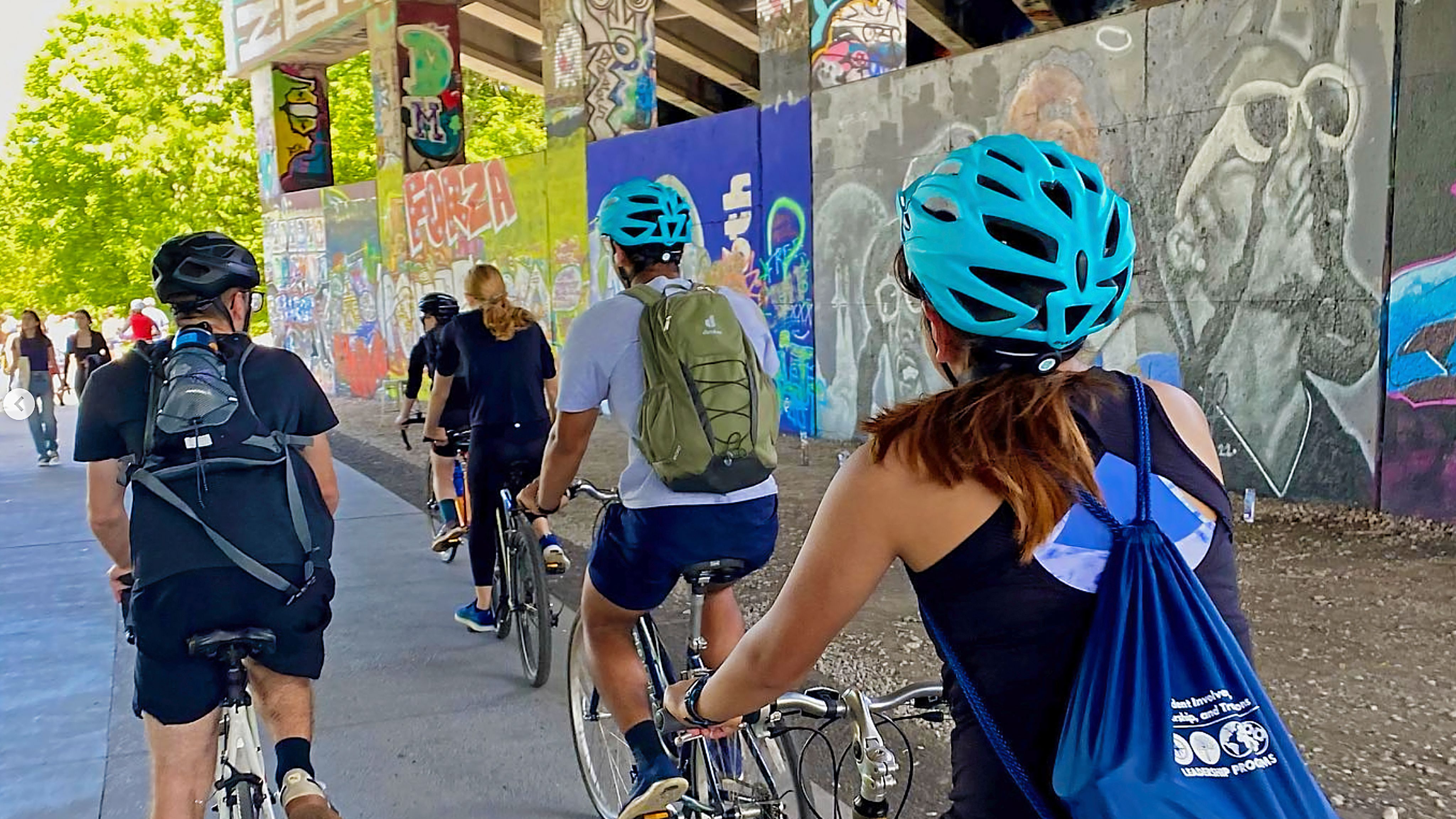

Helping Out: Whether it’s Emory Cares, Earth Day or a more impromptu need, students have plenty of chances to do something for the greater good through volunteering opportunities and serving their communities, as this outdoorsy crew helped with a campus clean-up.
Helping Out: Whether it’s Emory Cares, Earth Day or a more impromptu need, students have plenty of chances to do something for the greater good through volunteering opportunities and serving their communities, as this outdoorsy crew helped with a campus clean-up.

Embracing Diversity: Emory welcomes a diversity of identities, abilities and ethnicities and celebrates these differences. Events like the Black Joy showcase, held this past year by the Oxford SGA, helps build a stronger sense of community on our campuses.
Embracing Diversity: Emory welcomes a diversity of identities, abilities and ethnicities and celebrates these differences. Events like the Black Joy showcase, held this past year by the Oxford SGA, helps build a stronger sense of community on our campuses.

Multiverse of Connections: Student organization fairs at both Oxford and Emory campuses, like this one held last fall at the start of the school year, help students find classmates who share the same interests and identities.
Multiverse of Connections: Student organization fairs at both Oxford and Emory campuses, like this one held last fall at the start of the school year, help students find classmates who share the same interests and identities.

A Source of Pride: Emory’s Office of LGBT Life supports student-led organizations at both the Atlanta and Oxford campuses and helps students build community through a wide array of programming and activities, including participation in last year’s Atlanta Pride Festival.
A Source of Pride: Emory’s Office of LGBT Life supports student-led organizations at both the Atlanta and Oxford campuses and helps students build community through a wide array of programming and activities, including participation in last year’s Atlanta Pride Festival.

Riding Rules: Biking is a popular mode of transportation to get around campus, as well as good exercise, but for many cycling fanatics, that’s not enough. Emory Bike Social is a very popular and active organization that plans longer group rides, giving students a chance to explore Atlanta.
Riding Rules: Biking is a popular mode of transportation to get around campus, as well as good exercise, but for many cycling fanatics, that’s not enough. Emory Bike Social is a very popular and active organization that plans longer group rides, giving students a chance to explore Atlanta.
UNCOVERING AND UNDERSTANDING STUDENT NEEDS
In his first year at Emory, Raper has already made a big impact. He’s engaged students in a comprehensive mental health survey, called the Healthy Minds Study, to gather data, both quantitative and qualitative, to create a better picture of the university’s well-being needs.
“It’s the gold standard in assessing mental health and well-being in student communities,” Raper says. “It also looks at student perceptions around the related services we provide. And it helps us develop a sustainable and targeted strategy for our community and to allocate well-being resources where they are most needed.”
He also created a Student Well-Being Advisory Committee to engage students in the process and make sure an inclusive, diverse group has a seat at the table with top administrators where their voices and ideas can be heard and turned into sustainable action.
Rachel Lebovic 23C has been one of the most active students on the committee, and Raper says he has greatly enjoyed working with her over the past year. Soon after Emory announced his hiring, she emailed him asking him if they could meet once he arrived on campus. “Rachel is one of many exceptional Emory students who wants to engage and partner with us and use her voice to effect change,” Raper says.
A native of Toronto, Lebovic has suffered more than a decade of being bounced around in the mental health systems of both the U.S. and Canada. Her illness proved difficult to treat and included intensive inpatient treatment during particularly acute episodes. A huge turning point in her struggles came two years ago was when she was diagnosed as being on the autism spectrum. “That’s when everything finally started to make sense,” she says. “It helped explain why I’ve been so resistant to treatment.” At Emory, she’s had success working with CAPS counselors and Student Health Services providers who referred her to the Emory Autism Center. Doctors there subsequently enrolled her in the Emory Oaks program at the School of Medicine. “It’s a fairly new program the university created to help students on the autism spectrum cope with college life,” she says.
Lebovic also formed a strong bond with an Emory-referred therapist in the Atlanta community, and at last college life became what she had always hoped it to be: exciting, full of friends, mind-expanding. But she’s driven to use her experiences to become an ardent advocate for improving mental health resources at the university and other communities. In the fall, she will be focusing on the intersection between mental health and public health as she pursues a master’s of health sciences degree at the Johns Hopkins Bloomberg School of Public Health.
“I hope to one day work at the interface of public health and medicine to work on prevention and early intervention,” Lebovic says. “We shouldn’t be waiting until people are critically ill or in crisis to start helping them. It shouldn’t be a competition of ‘who’s sick enough’ or ‘who’s sickest’ among those in need to see who gets treatment.”
Meanwhile, this summer Lebovic is staying on at Emory to continue her work with Raper on well-being projects — and has even arranged to get internship credit for her upcoming master’s program. She is particularly excited that the Healthy Minds Study will provide crucial data on student needs. “A lot of students who don’t understand the system say we just need to hire more clinicians at CAPS or something like that to address perceived gaps,” she says. “But the data will help show us where students are really struggling and point to ways we can meet them where they are.”
College will always be challenging, Lebovic says. “But for many students, Emory might be the first safe place they’ve been in years,” she says. “I truly feel like Emory is a safe, nurturing environment where students who’ve had hardships — like me — can finally start to work through their problems and get the help and support they need.”

THE FUTURE OF WELL-BEING AT EMORY
Looking at the future of well-being at Emory, Raper wants to broaden and normalize the community’s ability to discuss mental health and support mental health. “We will continue to bolster the downstream clinical services, including our newly expanded focus on trauma care in the Office of Respect,” he says. “But it also includes catching students a little more upstream with well-being coaching services, a program we are significantly expanding that will serve as a resource to meet emerging student needs that either aren’t clinical or before they might become clinical.”
This will have the added benefit of defraying some of the demand on the university’s clinical mental health services, freeing up demand at CAPS and psychiatry services and thus increasing access for students who do need more intensive clinical services, he notes.
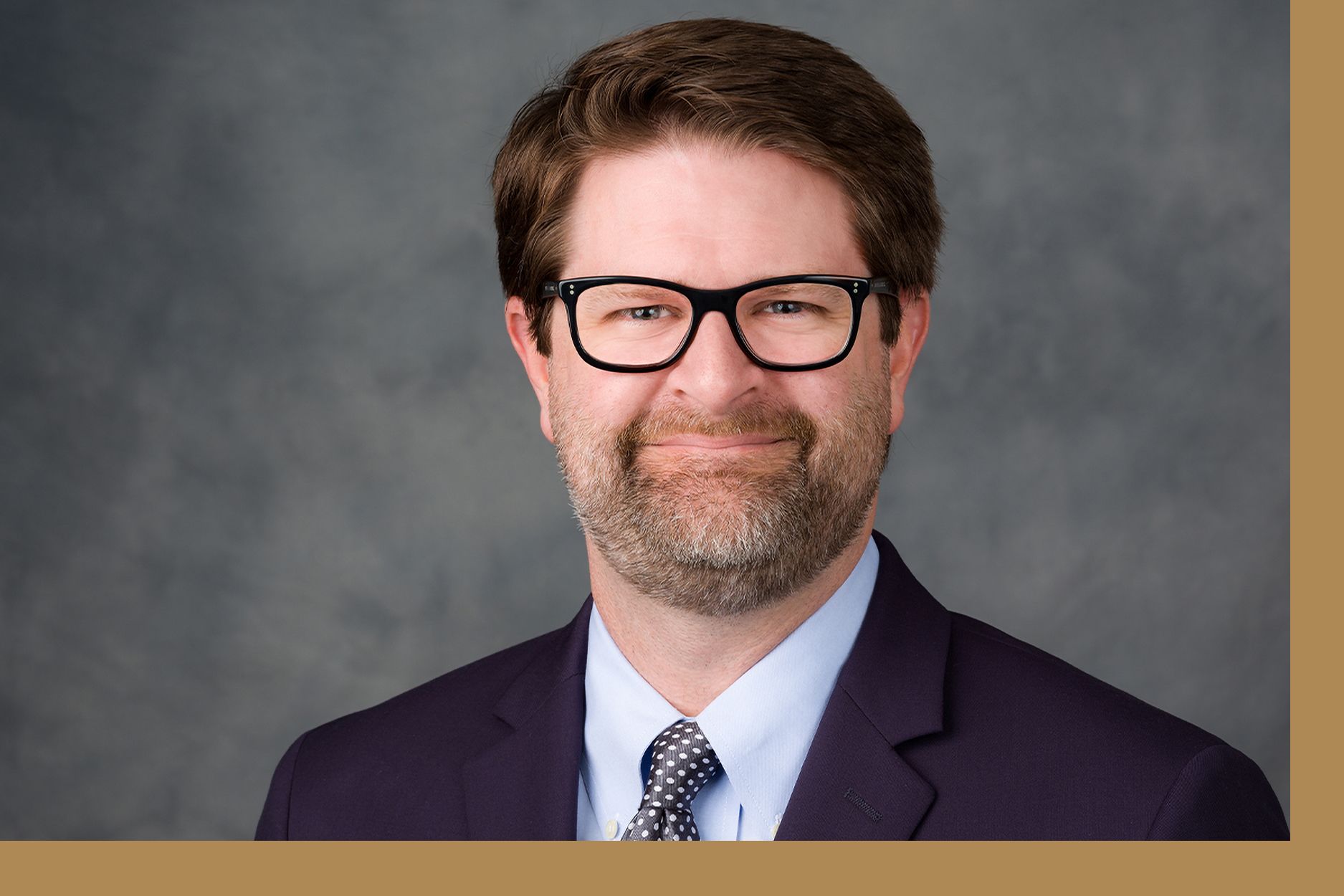
“One of my goals is to create a community that allows its members to be enough — to create empathy and love among students and faculty and everyone on our campuses.”
Additionally, at a highly competitive university like Emory, Raper strongly asserts that academic rigor and well-being should not be diametrically opposed. “We understand how students feel the pressure to be perfect and how that impacts their mental states,” he says. “We need to foster an environment where students can remember that they already met a high bar by getting into Emory. They’ve already proved that they’re enough academically and as human beings.”
Raper believes that if student well-being is improved, academic performance should improve naturally, too — sans the stress. “We’re having robust conversations with faculty to ensure the entire campus community is involved, particularly as we’re developing our campaign centered on dismantling perfectionism set to launch this fall.”
The drive to be perfect is a problem ubiquitous among many university students. While some moderate anxiety can help us perform well, Raper states, collectively the university needs to explore opportunities to reduce some of the unnecessary pressures it might place on students so that they can flourish academically, creatively, intellectually and socially.
“It's tough because students have spent their high school years competing academically to get into top schools like Emory and then when they get here, it’s like we’re asking them: ‘Why are you all so stressed?’ That’s so unfair to them,” Raper says. “One of my goals is to create a community that reinforces and reminds one another they are already enough — to create empathy and love among students and faculty and everyone on our campuses so our students can explore and pursue their passions unburdened.”
During Emory’s 178th Commencement this May, student speaker Nicole Felix-Tovar 23C addressed perfectionism and how difficult it was for her to juggle classes, work and volunteering with Emory Emergency Medical Services during the past four years — all while thinking she had to be perfect at everything.
In calls to her parents explaining the pressure and her struggles, her mom often reminded Felix-Tovar that she was not perfect. “I think those words are one of the truest expressions of love and compassion I’ve ever experienced,” Felix-Tovar told her graduating classmates. “On your journey to accomplish your big goals and dreams, you are allowed to fall down and fail. You’re allowed to make mistakes, change your mind and just be who you are.”
She continued: “You don’t have to be perfect to be loved, valued and appreciated, and you have inherent worth regardless of your accomplishments. Each of us has our own unique path, and if we were perfect, then we’d all just be replicas of the same person.”
Another upstream area Raper is excited to see Emory embrace as a community is contemplative practice. “Mindfulness is a real-life skill set that we’d like to develop in our students, faculty and staff,” he says. “We implemented it at scale at my previous institution and it became transformative for our community, and I’m hopeful it could have a similar impact here at Emory. Contemplative practice feels daunting to start, particularly for folks who feel like they need to get it ‘right.’ But once you get used to the idea and try it, it helps to create deeper self-awareness and grounding in the moment. It can be the antidote to what ails many of us.”
Better communication about Emory’s wide array of well-being programs and services is also a major item on the Campus Life agenda for the near future. Too often students are confused about how to find and access these offerings.
“Emory has wonderful resources around mental health, clinical counseling, physical fitness, meditation and self-care practices, but it matters how often and where we are sharing this information with students,” Odejimi says.
Meeting students where they are — which includes a host of different and ever-changing social and messaging platforms — is key to their success, Raper adds.
“We also are working to enhance and centralize our well-being communications into a simple, single hub,” Raper says. “We have all these amazing resources for students at Emory and they often don’t know how to access them and use them. Moreover, how we construct and evolve our physical spaces for integrated and holistic community well-being will also be a critical component of our strategy.”
Business student Khegan Meyers 24B concurs that communications and other gaps have been an issue in the past, but he has been impressed with the progress made in the past year and is excited about the future of well-being at Emory.
As the current president of the undergraduate Student Government Association, Meyers has been directly involved in discussions with university leaders about well-being issues.
“It’s been amazing that James Raper and others have not only been actively listening to student feedback, but also that they are actually taking steps to fill gaps and take programs and resources to the next level,” he says. “I strongly believe that this presence and engagement with the student body, this willingness to learn different perspectives, will ultimately lead to the best kind of outcomes.”


Want to know more?
Please visit Emory Magazine, Emory News Center, and Emory University.

